
The IDH1 inhibitor ivosidenib induced a complete response (CR) or CR with partial hematologic recovery for 30.4% of patients with relapsed/refractory IDH1-mutant acute myeloid leukemia.

Your AI-Trained Oncology Knowledge Connection!


The IDH1 inhibitor ivosidenib induced a complete response (CR) or CR with partial hematologic recovery for 30.4% of patients with relapsed/refractory IDH1-mutant acute myeloid leukemia.
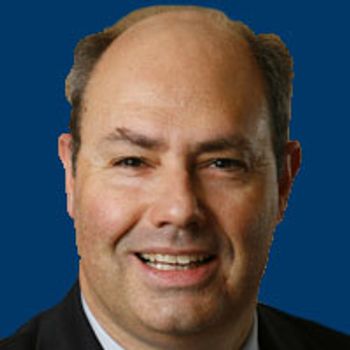
Patients with cancer who have venous thromboembolism had similar rates of recurrent VTE or bleeding with the oral factor Xa inhibitor edoxaban (Savaysa) or the low-molecular weight heparin dalteparin (Fragmin).
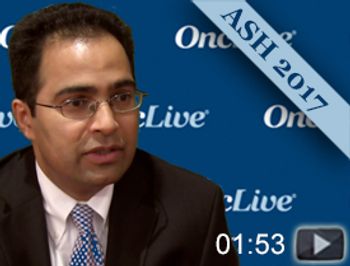
Naveen Pemmaraju, MD, Department of Leukemia, Division of Cancer Medicine, The University of Texas MD Anderson Cancer Center, discusses the clinical trial results for LCL161 in patients with intermediate or high-risk myelofibrosis.

Daratumumab (Darzalex) displayed single-agent activity in intermediate- and high-risk smoldering multiple myeloma, according to results from the phase II CENTAURUS study.
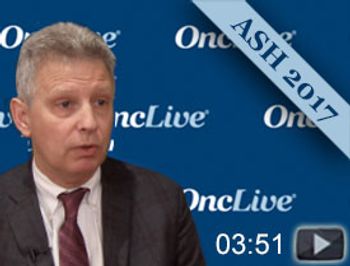
Ian Flinn, MD, Director of the Blood Cancer Research Program, Sarah Cannon Research Institute, discusses the safety, efficacy, and MRD negativity of a combination of venetoclax (Venclexta) and obinutuzumab (Gazyva) in patients with previously untreated chronic lymphocytic leukemia (CLL) during the 2017 ASH Annual Meeting. Overall, 32 patients were treated with this combination in the first-line setting. Investigators saw high complete remission (CR) rates, with over two-thirds of patients experiencing a CR, Flinn explains. In addition, high MRD negativity rates were also demonstrated, in both the peripheral blood and the bone marrow.
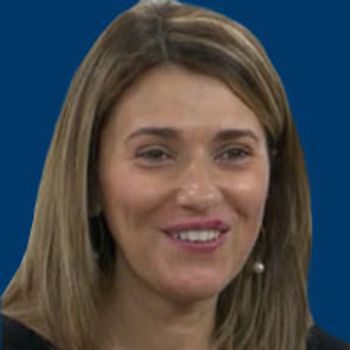
The addition of daratumumab to bortezomib, melphalan, and prednisone (VMP) reduced the risk of progression or death by 50% compared with VMP alone for transplant-ineligible patients with newly diagnosed multiple myeloma.
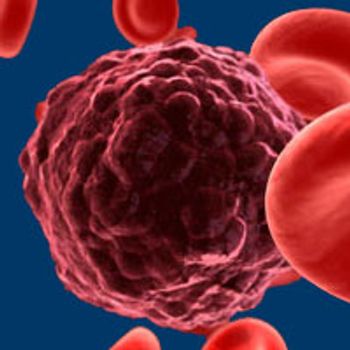
The combination of venetoclax and rituximab reduced the risk of disease progression or death by 83% versus bendamustine plus rituximab in patients with relapsed or refractory chronic lymphocytic leukemia.
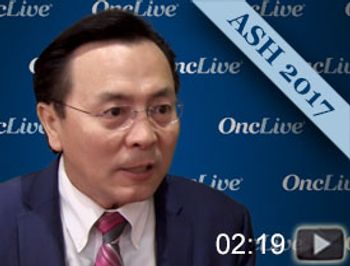
Michael Wang, MD, professor in the Department of Lymphoma and Myeloma at The University of Texas MD Anderson Cancer Center, discusses results from the phase II ACE-LY-004 trial, which explored the BTK inhibitor acalabrutinib (Calquence) in patients with refractory mantle cell lymphoma (MCL).
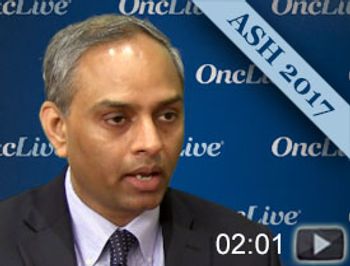
Sattva Neelapu, MD, associate professor, Department of Lymphoma/Myeloma, Division of Cancer Medicine, at The University of Texas MD Anderson Cancer Center, discusses the updated findings of the ZUMA-1 trial investigating axicabtagene ciloleucel (axi-cel; Yescarta) for patients with refractory aggressive non-Hodgkin lymphoma.
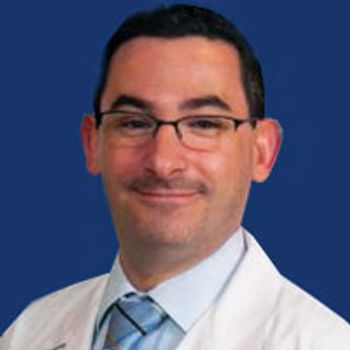
Liso-cel (lisocabtagene maraleucel), formally known as JCAR017, induced an objective response rate of 81% with a complete remission rate of 63% in patients with relapsed/refractory diffuse large B-cell lymphoma.
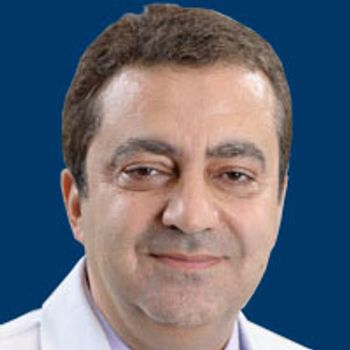
The frontline combination of atezolizumab, obinutuzumab, and bendamustine, achieved a complete response in 75% of patients with follicular lymphoma, according to findings from a phase Ib/II trial.
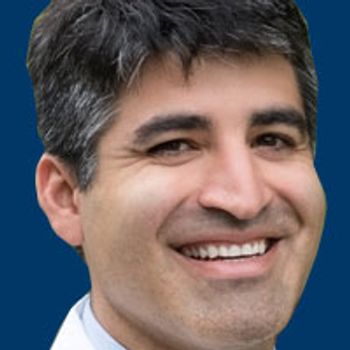
Brentuximab vedotin (Adcetris) plus nivolumab (Opdivo) appeared active and well tolerated for the treatment of patients with relapsed/refractory Hodgkin lymphoma.

Despite a faster time to complete remission, the addition of rituximab (Rituxan) to ibrutinib (Imbruvica) did not improve PFS or overall survival OS compared with ibrutinib alone in patients with CLL.
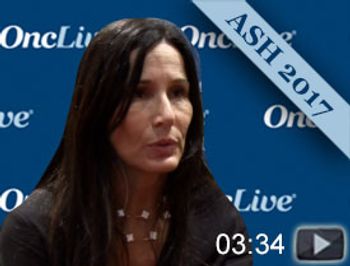
Cristina Gasparetto, MD, associate professor, head of the myeloma program, Duke University Medical Center, discusses a phase 1b study to assess the combination of selinexor and daratumumab (Darzalex) in patients with relapsed/refractory multiple myeloma previously exposed to proteasome inhibitors and immunomodulatory drugs during the 2017 ASH Annual Meeting. Selinexor is an interesting new drug that inhibits Exportin 1 (XPO1), which reactivates some of the tumor suppressor proteins. In the phase 1b portion of the study, investigators aimed to identify the optimal dose of selinexor in combination with daratumumab. Gasparetto says the study included a small number of patients, but demonstrated very encouraging data.

A novel approach demonstrated durable responses in the treatment of patients with smoldering multiple myeloma, according to results from a single-arm, phase II trial.
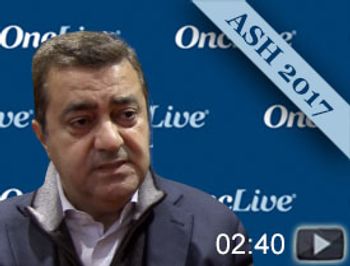
Anas Younes, MD, Chief of Lymphoma Service, Memorial Sloan Kettering Cancer Center, discusses the interim analysis of a study exploring the safety and efficacy of atezolizumab (Tecentriq) in combination with obinutuzumab (Gazya) and bendamustine in patients with previously untreated follicular lymphoma.

Cemiplimab as a monotherapy and in combination with the monoclonal antibody REGN1979 demonstrated clinical activity in patients with B-cell non-Hodgkin lymphoma and Hodgkin lymphoma.
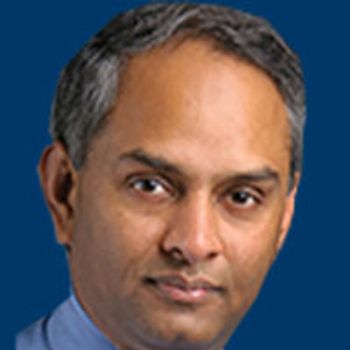
Axi-cel (axicabtagene ciloleucel; Yescarta) maintained a complete remission rate of 40% with a median follow-up of 15.4 months for patients with refractory, aggressive non-Hodgkin lymphoma.
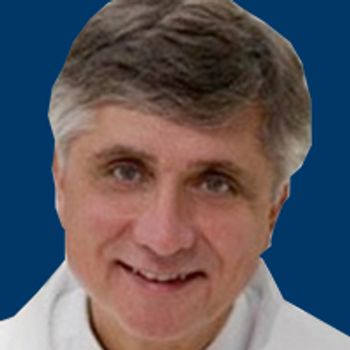
The CAR T-cell therapy tisagenlecleucel (Kymriah) achieved an overall response rate of 53.1% in adult patients with relapsed/refractory diffuse large B-cell lymphoma.
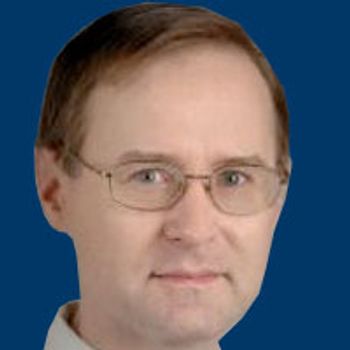
Treatment with the BCMA-directed CAR T-cell therapy bb2121 induced complete remissions for 56% of patients with relapsed/refractory multiple myeloma.
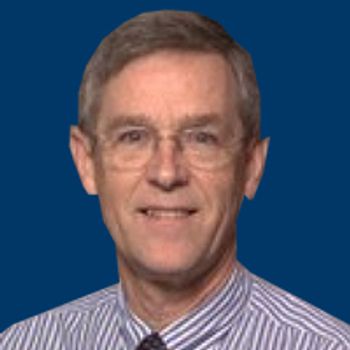
The phase III ECHELON-1 study in Hodgkin lymphoma compared the use of A+AVD with standard chemotherapy of doxorubicin, bleomycin, vinblastine, and dacarbazine.
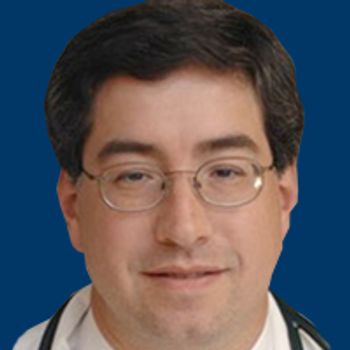
Treatment using BLU-285 (Avapritinib) induced clinically significant activity in patients with an advanced or aggressive form of systemic mastocytosis, according to data from an ongoing phase I trial.
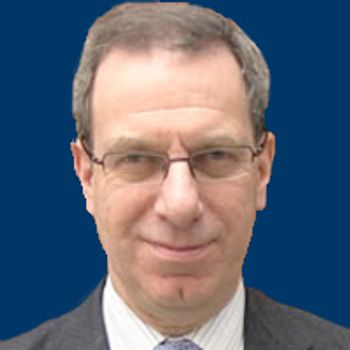
The combination of ibrutinib (Imbruvica) and venetoclax (Venclexta) elicited a complete response (CR) or CR with incomplete hematologic recovery rate of 47% for patients with relapsed/refractory chronic lymphocytic leukemia.
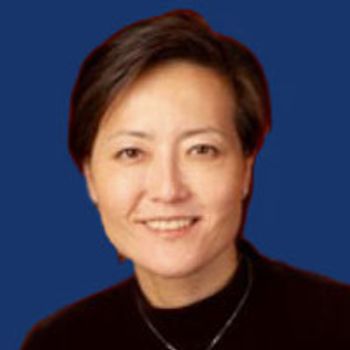
The anti-CCR4 monoclonal antibody mogamulizumab reduced the risk of progression or death by 47% compared with vorinostat (Zolinza) in previously treated patients with cutaneous T-cell lymphoma.
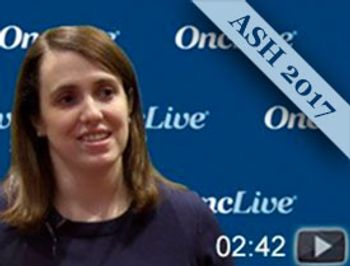
Kerry Rogers, MD, Assistant Professor, Internal Medicine, Division of Hematology, The Ohio State University Comprehensive Cancer Center, discusses a phase II trial of early intervention with ibrutinib (Imbruvica) in patients with asymptomatic, high-risk chronic lymphocytic leukemia (CLL) during the 2017 ASH Annual Meeting.
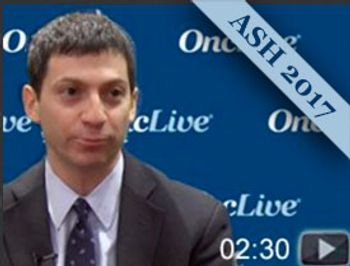
Matthew S. Davids, MD, Associate Director, Dana-Farber Cancer Institute Center for Chronic Lymphocytic Leukemia, discusses a study that explored optimizing checkpoint blockade as a treatment for relapsed hematologic malignancies after allogenic hematopoietic cell transplantation.

The investigational BTK inhibitor zanubrutinib (BGB-3111) demonstrated promising clinical activity in patients with non-Hodgkin lymphoma.

Lenalidomide (Revlimid) plus rituximab (Rituxan) is a feasible combination that is also safe and active, as initial and maintenance therapy for patients with mantle cell lymphoma.

Treatment using oral rivaroxaban (Xarelto) reduced venous thromboembolism (VTE) recurrence among patients with cancer, according to results from the select-d trial.
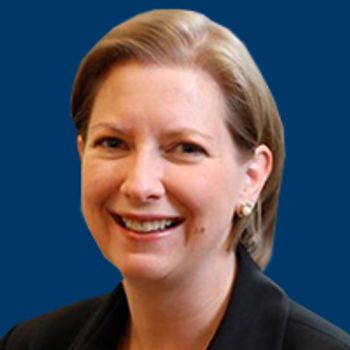
Monotherapy with an antibody drug conjugate targeting the transmembrane protein LIV-1 had encouraging antitumor activity in a phase 1 study of patients with heavily pretreated TNBC.